You’re on your hands and knees, naked, pawing the dingy shag carpet with your scratched and cut hands, looking for scraps of crack that might have fallen from the pipe a few hours earlier. The bright sun streams through dirty windows, the day is already hot, and you want to die. The fun is gone, over, and you don’t derive any pleasure from cooking. That’s been the case for a while now, ever since the night you looked up from the piece of meat in your hand and drew a blank. You had no idea, no thought or plan, nothing. You put down the knife, and the steak, and walk out the back door, throwing your apron on the wet ground.
It’s still early, so you run your fingers through your hair, wipe the sweat from your face, and walk through the door. Your place at the bar is unoccupied, and Mike nods at you, puzzled look on his face. Why are you here at this time of night, instead of at the restaurant? You sit, he puts the glass of whisky in front of you. The odor of sweat and onions and blood overtakes the moment, and you reach for the glass and drink, an attempt to annihilate the stench. The whisky burns, tastes good, and for a minute you relax.
But the minute passes and you want to go. Somewhere. Anywhere. But not there, not the room with no curtains and splotchy walls and unopened mail strewn on the counter that once held bowls of fruit and loaves of bread. You stand up and shake Mike’s hand, walk out of the bar and into the night headed nowhere on purpose but end up back in that room, on the couch hungry and hot and sweating, trying to remember the feeling of meaning something to someone, anyone, you, her, them. It doesn’t come back to you.
The notebooks are full, so you send a story to Paul, the friend with connections in the publishing world who thinks your stories are good. You had put down the knife and picked up the pen, an act that when it happened meant nothing to you, an act for which you had no forethought, no plan. The words and ideas and desires in your head, those things meant something, and they were jumbling up against one another in your brain and they frightened and aroused you so you probably saved yourself by committing them to paper, to reality. You wrote about what you knew, and loved and respected and detested, and Paul was right and the publisher loved your thoughts and statements and you saved yourself, because when your goal is becoming a good heroin addict, what remains after that?
Les Halles in the late afternoon, the Park Avenue weeknight crowd passing by the double doors, the bar full of men in ties and women wearing pearls and wedges. You’re feeling good, and cooking well. You like the honest food and the unpretentious place. There’s something comforting about the macaroni gratin and the meats in the glass case and the Gamay on the wine list and the people enjoying your dishes and you got a new apartment and this one has wood floors and you had them take out the carpeting in the bedrooms and the desk at which you write is overflowing with books and you sent another manuscript to the publisher and the book tour starts next week and the night is easy.
What you always tried to do, since the time in that boat in Brittany when you sucked the oysters from their shells in the warm sun and wondered about the fish under the water and how they would taste, what you wanted to capture always, was an entire existence in a mouthful, a feeling that nothing was wrong and the horizons, your horizons, were wide open and the next breath you took would lead surely to the next a step and movement and thought that meant something, that meant you meant something, mattered.
That’s how it was for a long time, and that’s how it was again. You are not in France, but you are in New York and cooking and laughing and the guys respect you — the book helps, of course — and the magazine articles and photographs and the people coming to the restaurant hoping to catch a glimpse of you.
Your parents had taken you and your brother to France, and you became, after those oysters, what you are, the man seeking that complete, meaningful, worthy existence in a mouthful, with others you respect. The bread and cheeses and foie gras had split your brain wide open, turned you into something that was at first frightening but that after several months you gave no thought to, because it was who you were supposed to be and that felt right and good and you no longer shook your right leg nervously when you sat. You had wine, and you walked on the beach and kissed Simone and her hand was cold then warm and you wanted to stay in that place forever with her.
You are in a car in California with Eric and Michael and the sun is high and the three of you want to eat and drink and the meal ahead will be long and pleasurable; the chef, this man who gives you “vapors”, is going to cook 21 courses, and the wines are chilled and open as the car pulls up to the restaurant’s driveway. You think of Bocuse and Lyon and the stall in Hong Kong and the old woman in Mexico whose mole is the best you’ve ever tasted (that’s the very moment, when you and Eric and Michael walked through the restaurant’s door, that you had the idea of bringing all the food you love to one place, a pier on the Hudson in Manhattan) and cannot believe that the person in your body is the real you. You are not supposed to be here, you are supposed to be in a small kitchen somewhere in Manhattan, cooking for businessmen and tourists. You’ll feel this way forever, that you are a fraud, that at any minute it will all end and you’ll be Tony again and you’ll be on your hands and knees looking for that feeling again, the one you first had on that small boat on calm waters off the coast of Brittany when the briny oyster first touched your tongue.
That fear, of it all suddenly ending, never leaves you, no matter what you’re eating or whom you’re talking to, whether you’re sitting at a sushi bar in Tokyo or squatting in a hovel in Cambodia. One of the problems is that you don’t like the person you were, the one who was an asshole to people, the one who, just to shock, carried a machete around with him, the one who yelled cruelly for no reason. You can’t seem to give yourself a real chance to accept the idea that you changed, have overcome that man and was someone else, someone with a family and respect and genuine, unselfish emotions, a man whose passions for life and all of its experiences outstripped his attraction to self-denigration and dissipation. Your intelligence is, of course, more than sufficient to allow you to realize that, but what’s intelligence up against emotion and fear?
You stuck at it, the filming and the running and flying and you even quit smoking cigarettes and lost weight and took up martial arts and honed your speaking persona and your causes — who can forget the episode you filmed in Lebanon? — and your books continued to sell and a new generation of admirers came aboard (to say nothing of the acolytes, the guys who would give their left testicle to be you, a cohort you were not always comfortable with, especially after you realized that machismo and excess were not the road to great food). You were admired, and you, most of the time, admired yourself. There is no disputing that your dedication to the reality that food and respect for it, and the individuals who produced and cooked it, was honest and real. You were not a fake. James Beard Awards? Who cares. Ruth Bourdain deserves one, however, you state, so much more than those food writers with their panties in a wad, “a bunch of old hookers complaining about the new girl who kisses on the lips.” No, you are not a fraud.
Demons. They never leave, though, do they? Your parents divorced when you were young, and that, though hard for you to believe, still hurts, always hurt. You married your high school sweetheart, you two stayed together a long time, that was important to you. Your daughter came to you late, and that was a good thing for you. But would you fail, you asked yourself incessantly. How can I be a good father? I’m fucked up, I’ll fuck this up.
Keep moving, you say, don’t stop, there are too many people out there who need me to tell their stories. Maimed and sad people, people whose food deserves exposure, you sent that dying boy on a feast journey to Spain and made his wish come true and you made sure writers and chefs and cooks and just plain people you admired and respected got the recognition they deserved (that was the best part for you, the thing about yourself you most admired). Keep moving, through those years.
France is the key, of course. Those oysters and that girl and the mouthfuls of perfect moments leading from one to the next, no one asking anything of you, no one begging you to come to their restaurant or have lunch with them or sign their book (how many books did you sign?) or adopt their cause or make their city famous. France and Eric and Bocuse and nothing but … hunger.




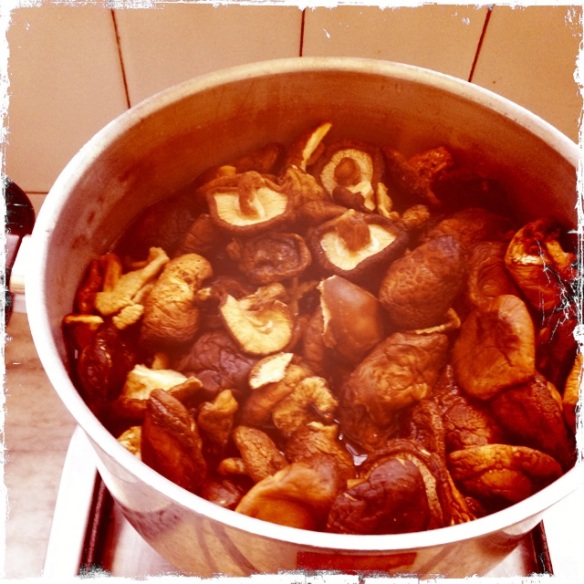
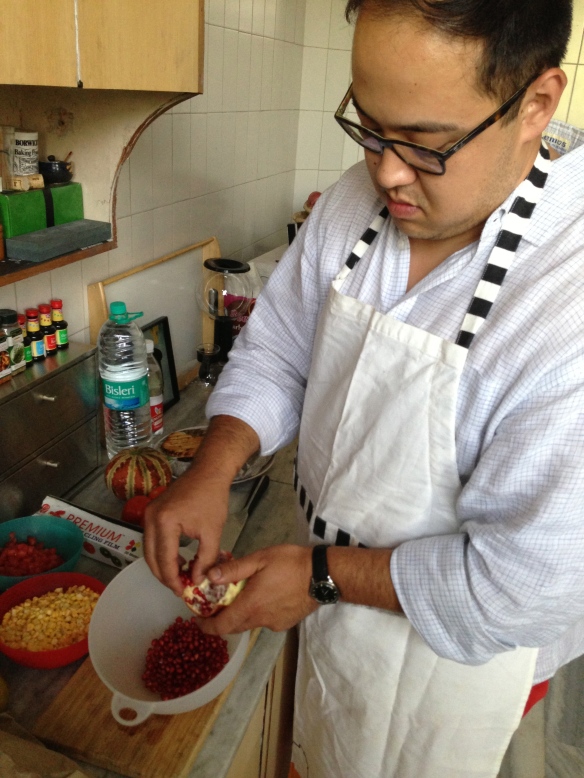
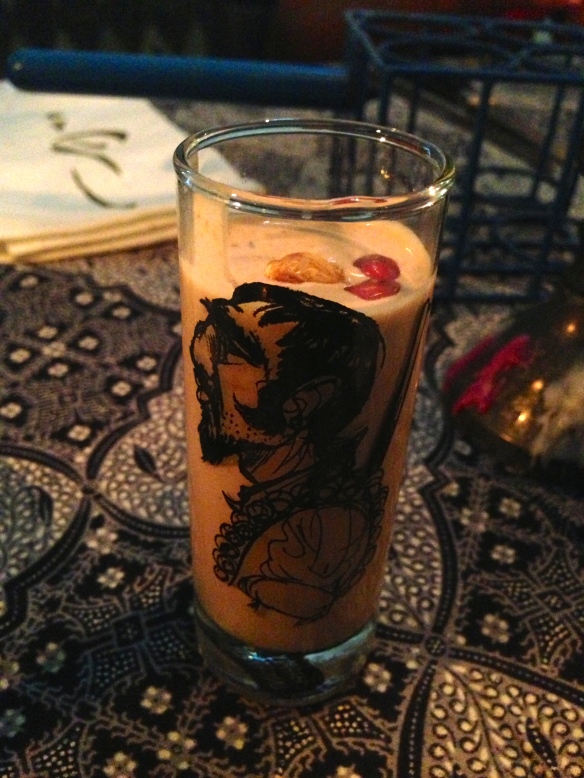
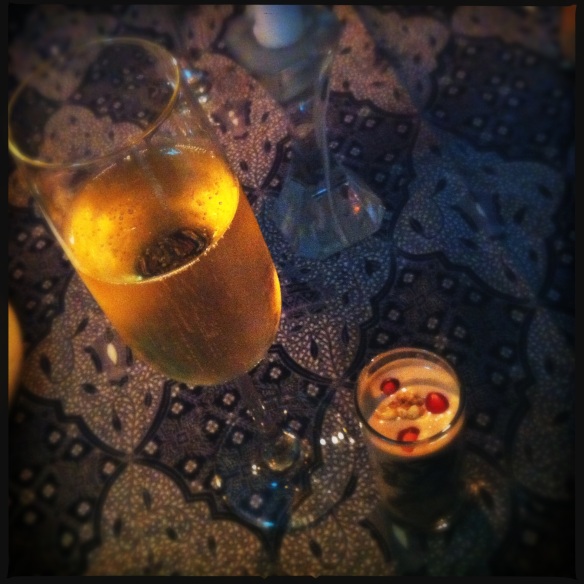
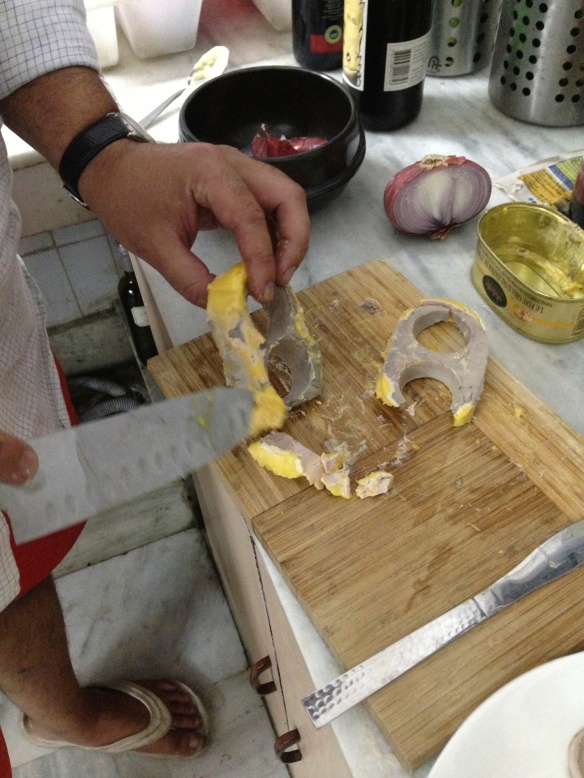
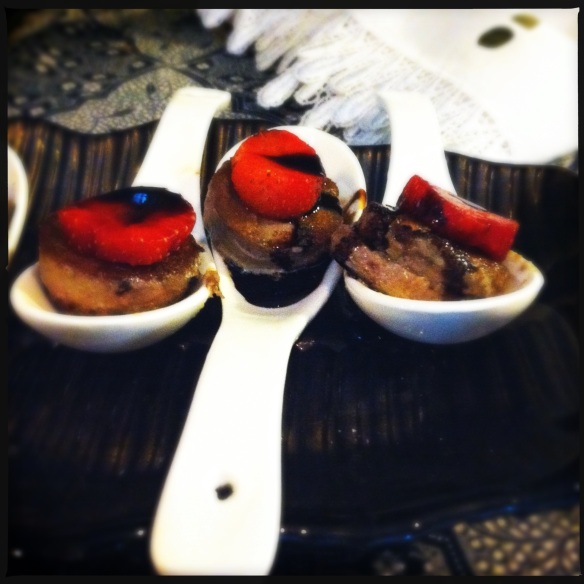
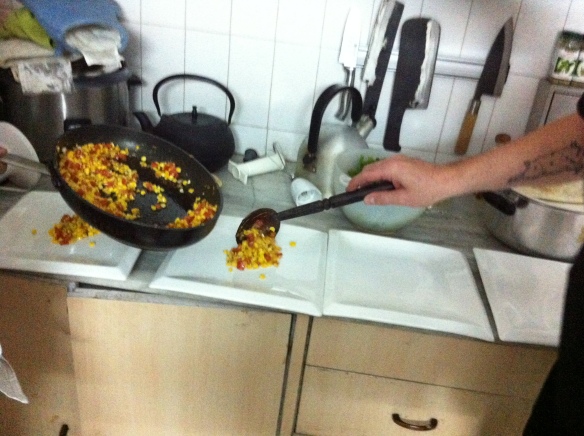
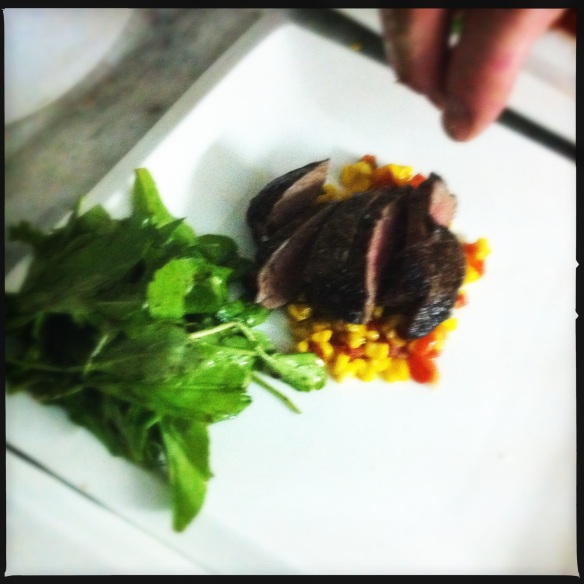
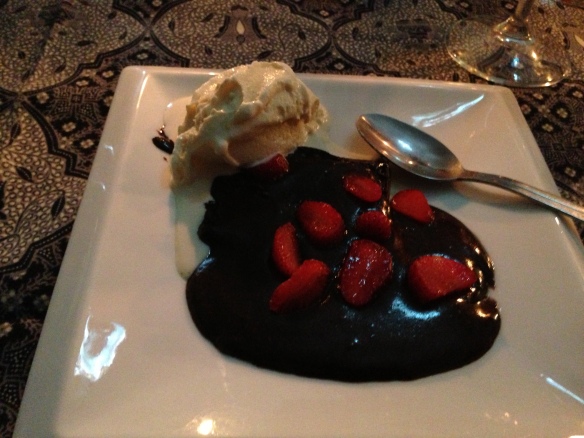
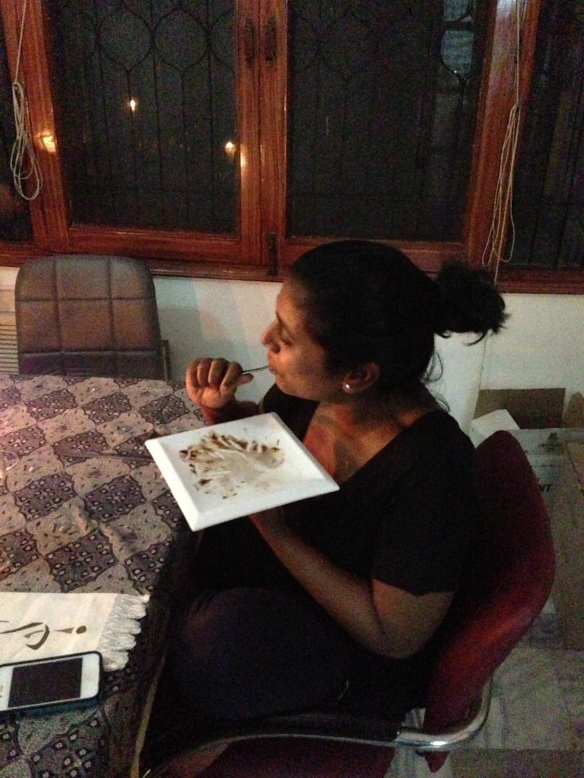







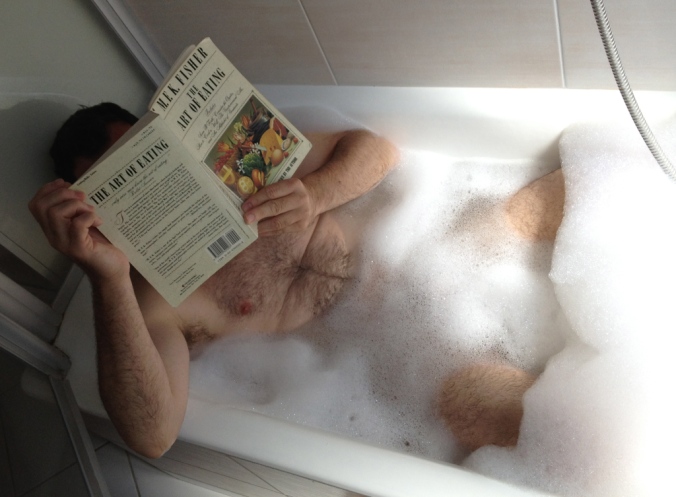








Recent Comments